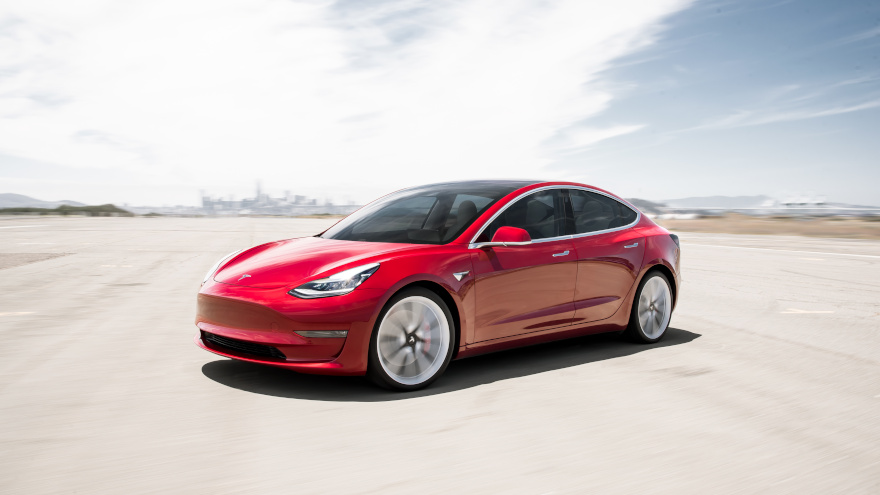Tesla salespeople rank highest in EV ‘prospect satisfaction’

Tesla Model 3. Photo credit: Tesla
By subscribing, you agree to receive communications from Auto Remarketing and our partners in accordance with our Privacy Policy. We may share your information with select partners and sponsors who may contact you about their products and services. You may unsubscribe at any time.
MONTEREY, Calif. –
Electric vehicle technologies are often new to many customers visiting an auto dealership, so the salesperson must also be able to introduce and explain the operation of EVs and the features and benefits of EV technology, such as understanding garage-charging options, according to Pied Piper Management Co.
Success selling EVs depends on many of the same salesperson behaviors that customers find helpful when shopping for traditional automobiles, Pied Piper added.
In its “PSI for EVs” study that includes its “Prospect Satisfaction Index,” Pied Piper listed the manufacturers that most effectively helped customers become EV buyers. Ranked at the top of the list was Tesla, followed by BMW and Nissan.
(The irony is not lost here, as it was widely reported last week that Tesla is shutting down dealerships to go for an online-only model).
Tesla salespeople, compared to salespeople for other brands, were more likely on average to describe how to use national charging networks or understand garage charging options, according to the study. BMW salespeople performed best in the area of explaining EV incentives and rebates, or noting how vehicle range changes based upon driving conditions.
Study participants named Nissan salespeople as more likely to ask how the vehicle would be used to determine adequate battery range, or to describe the convenience of one-pedal driving.
Subscribe to Auto Remarketing to stay informed and stay ahead.
By subscribing, you agree to receive communications from Auto Remarketing and our partners in accordance with our Privacy Policy. We may share your information with select partners and sponsors who may contact you about their products and services. You may unsubscribe at any time.
Pied Piper’s Prospect Satisfaction Index process uses “mystery shopping” measurement and scoring, along with industry sales success, to measure how effectively dealerships help shoppers become buyers. For 2019, Pied Piper applied the same approach to EVs, measuring how effectively each EV brand’s retailers help customers who visit a dealership.
Included in the study were brands selling battery electric vehicles (Tesla, BMW, Nissan, Jaguar, Chevrolet, Honda, Audi, Hyundai and Kia) or plug-in hybrid electric vehicles (Volvo, Mitsubishi, Mini, Chrysler, Toyota, Cadillac, Ford, Mercedes-Benz, Porsche and Subaru).The study chose models from vehicles promoted on manufacturer websites. Audi and Subaru showed EV models online, which were not yet present at their dealerships, so dealerships selling those vehicles were only able to accept orders.
“Imagine what it would have been like to sell a gas-powered automobile in the early 1900s,” Pied Piper Management Co. LLC president and chief executive officer Fran O’Hagan said in a news release. “Customers back then were buying their first car, and salespeople would have had to explain the basics, such as how to operate the vehicle or where to find fuel while traveling.”
Industry research today also finds that two-thirds of EV customers are first-time EV buyers, according to Pied Piper.
“EV sales are growing rapidly, and salespeople today play a critical role helping these new customers understand how EV technology will benefit them,” O’Hagan said.
The results for the 2019 Pied Piper Prospect Satisfaction Index auto brand ranking for EVs:
Tesla: 118
BMW: 111
Nissan: 107
Volvo: 105
Mitsubishi: 104
Mini: 102
Industry average: 100
Chrysler: 99
Jaguar: 98
Chevrolet: 92
Honda: 92
Toyota: 90
Cadillac: 88
Audi: 87
Hyundai: 85
Ford: 84
Kia: 79
Mercedes-Benz: 78
Porsche: 76
Subaru: 58


